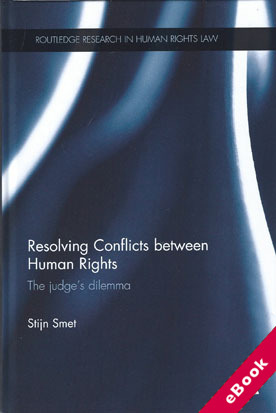We are now closed for the Christmas and New Year period, returning on Monday 5th January 2026. Orders placed during this time will be processed upon our return on 5th January.

The device(s) you use to access the eBook content must be authorized with an Adobe ID before you download the product otherwise it will fail to register correctly.
For further information see https://www.wildy.com/ebook-formats
Once the order is confirmed an automated e-mail will be sent to you to allow you to download the eBook.
All eBooks are supplied firm sale and cannot be returned. If you believe there is a fault with your eBook then contact us on ebooks@wildy.com and we will help in resolving the issue. This does not affect your statutory rights.
Under the influence of the global spread of human rights language and instruments, court cases that were previously strictly dealt with in terms of national law are increasingly framed in human rights terms.
In Europe, the case law of the European Court of Human Rights has been an undeniable catalyst in this process. Often, both parties to a legal dispute at the national level can rely on the human rights norms of the European Convention on Human Rights to support their competing claims.
In such instances, national courts are confronted with a particular kind of difficult case: a conflict between human rights.
This book explores how such conflicts between human rights can be defined and identified and considers whether such conflicts pose particular challenges in terms of their resolution. The book examines these questions against the specific backdrop of the case law of the European Court of Human Rights.
The author questions the relevance of the proportionality test in the domain of conflicts between human rights, instead putting forward a resolution framework, specifically designed for the resolution of cases involving conflicts between human rights. While the analysis is largely drawn from the case law of the European Court of Human Rights its finding are applicable to judicial practice in general, setting out how judges could, the world over, resolve conflicts between human rights.